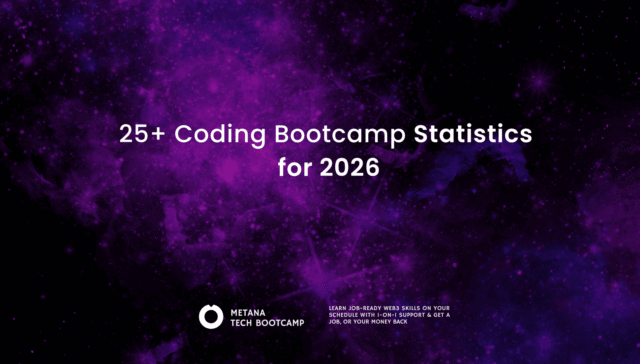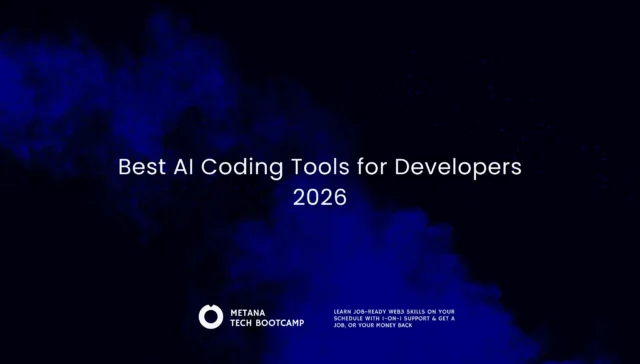In today’s landscape of web development, the role of a full stack developer has emerged as one of the most dynamic and essential positions in technology. Full stack developers handle all aspects of web application development, from user interface design to server-side functionality and database interfaces. This versatility allows them to create seamless, end-to-end solutions that meet the demands of modern digital experiences.
As technology continues to advance and websites become essential platforms for meeting user needs, the demand for highly skilled full stack developers is on the rise. To succeed in this field, developers must continually enhance their skills. A full stack developer is crucial in determining the final outcome of a website and ensuring user satisfaction. Their expertise spans both front-end and back-end development, making them integral to delivering a seamless and effective user experience.
This article delves deep into exploring the in-demand full stack developer skills and discusses the importance of their role in today’s tech driven world. Whether you are a seasoned developer or a newbie to full stack development, including these abilities into your skill set will significantly improve your performance in the industry. Developing a comprehensive skill set is crucial for excelling as a full stack developer and achieving your professional goals.
Top 7 Skills a Full Stack Developer Needs
In today’s technology-driven landscape, highly skilled full stack developers are in high demand. Companies across the software development sector are seeking developers with professional expertise. These skills can be categorized into several groups such as front-end development, back-end development, DevOps, and soft skills. In this article, we highlight seven essential skills that employers expect from a full stack developer.
1. Front-End Programming Languages and Frameworks
Frontend development is all about creating the user interface and ensuring that the application looks and feels right. It is the developer’s responsibility to maintain a consistent user experience across the application, ensuring that it is both functional and engaging for the end user.
A Full Stack developer should have a complete understanding of frontend basics such as HTML, CSS, and JavaScript. Deep knowledge of these fundamental technologies is required for developing responsive and user-friendly interfaces. Additionally, knowledge of modern frontend frameworks and libraries such as React, Angular, and Vue.js is required for developing dynamic, scalable, and visually appealing apps.
A strong understanding of responsive design principles and best practices helps a developer improve the overall quality and functionality of the application.
2. Back-End Programming Languages and Frameworks
Back-end development focuses on the server-side logic and database interactions of the application. It is the developers responsibility to ensure that all functions contributes well to the overall purpose of the application.
A Full Stack developer must have a strong understanding of backend development, which involves managing server-side logic, databases, and application architecture. This includes proficiency in programming languages like Node.js, Python, Ruby, or Java, which are commonly used to build robust backend systems.
Additionally, familiarity with cloud platforms like AWS or Azure and deployment tools further strengthens a Full Stack developer’s ability to deliver scalable and reliable backend solutions.
3. User Interface and User Experience
User Interface (UI) and User Experience (UX) are critical elements that keep users engaged and navigating through an application. Ensuring user satisfaction is very important. While delivering the expected functionality, it is the developer’s responsibility to present these features in a user-friendly and intuitive manner.
A Full Stack developer must be well-versed in UI and UX principles to create responsive and user-centric designs. Since a Full Stack developer works across both frontend and backend, they play an important role in maintaining a seamless user experience throughout the application. Striking a balance between functionality and usability significantly enhances user satisfaction, contributing to the overall success of the application.
4. Databases
A Full Stack developer is expected to have a thorough understanding of databases, as the backend of any application relies heavily on effective data storage and management.
They should be well-versed in working with both relational databases (such as MySQL and PostgreSQL) and non-relational databases (such as MongoDB). This expertise allows them to efficiently store, manage, and retrieve data, ensuring smooth functionality across various application layers.
5. Git and GitHub
Git allows developers to manage their codebase by creating branches, merging code, and tracking history, which is critical for team-based projects. GitHub, on the other hand, acts as a platform to host repositories, enabling seamless collaboration, code reviews, and project management.
A Full Stack developer should be proficient in version control systems like Git and platforms such as GitHub. These tools are essential for tracking changes in code, collaborating with other developers, and managing project versions efficiently.
A Full Stack developer’s ability to work with Git and GitHub is crucial for ensuring smooth workflows, maintaining code quality, and enabling effective teamwork.
6. Problem-solving
Problem-solving is one of the most critical skills for a Full Stack developer. Working across both the frontend and backend requires the ability to tackle complex issues, from debugging user interface glitches to resolving server-side logic problems and database errors.
A Full Stack developer must be adept at identifying problems, analyzing the root cause, and implementing effective solutions. This skill also includes optimizing performance, ensuring security, and maintaining the overall functionality of the application. Being resourceful, thinking critically, and leveraging tools or frameworks to solve problems efficiently are essential skills that enhance a Full Stack developer’s value in any team.
7. Soft Skills
Soft skills are just as crucial as technical skills for a Full Stack developer. These skills enables developers to collaborate effectively with teams and stakeholders. Following are some common soft skills a Full Stack developer needs.
- Communication
- Effective communication is crucial for a Full Stack developer. Whether it’s explaining technical concepts to non-technical team members or collaborating with other developers, being able to articulate ideas clearly ensures that everyone is on the same page. This skill helps avoid misunderstandings, improves workflow, and enhances team efficiency.
- Adaptability
- A Full Stack developer must be flexible and open to learning new tools, languages, or frameworks. Being adaptable also means responding quickly to challenges or changes in project requirements, which can make a significant difference in project outcomes.
- Time Management
- Full Stack developers often juggle multiple tasks, from frontend design to backend integration. Effective time management is crucial to ensure that deadlines are met without sacrificing the quality of the code.
- Team Work
- Developers often work in cross-functional teams alongside designers, project managers, and clients. The ability to work cohesively with others, share knowledge, and offer support when needed is important to ensure a smooth development process and contribute to the overall success of the project.
- Creativity
- Full Stack developers need to think outside the box when tackling complex issues, whether it’s creating intuitive user experiences or coming up with innovative backend solutions. A creative mindset allows developers to build applications that are not only functional but also engaging and user-friendly.
The Importance of Full Stack Developers Today
Web applications have become something that users interact with everyday. Full stack developers are particularly valuable due to their ability to work across all layers of web applications, from the user interface to server-side logic and database management. Their versatility and comprehensive skill set make them highly adaptable and essential across various industries, often surpassing the roles of front-end and back-end developers.
Full stack developers offer significant advantages for industries seeking to streamline their hiring process. By working on both the front-end and back-end of projects, they provide a comprehensive solution that reduces the need for specialized developers in each area. This integrated approach simplifies project management and minimizes the need for multiple hires, making it more efficient and cost-effective for companies.
As a developer, enhancing your skills toward full stack development significantly increases your employability. It not only broadens your expertise but also enables you to contribute to all aspects of a project, from front-end design to back-end functionality. This versatility makes you a more valuable asset to potential employers, giving you a competitive edge in the job market.
Conclusion: Full Stack Developer Skills
Becoming a successful full stack developer requires a diverse set of skills, ranging from front-end and back-end development to deployment and soft skills. Mastering these areas enables developers to build and manage comprehensive web applications effectively. As technology changes rapidly, being up-to-date with today’s concepts, and by continuously learning new skills, full stack developers can stay ahead in the ever-evolving field of software development.
FAQs:
What is a full stack developer?
- A full stack developer works on both the front-end and back-end of web applications, managing the entire development process.
What programming languages should a full stack developer know?
- Key languages include JavaScript, HTML/CSS, Python, and SQL. Familiarity with frameworks like React and Node.js is also essential.
Why are front-end and back-end skills important for full stack developers?
- Front-end skills ensure a user-friendly interface, while back-end skills manage databases, servers, and application logic, creating seamless functionality.
Is cloud technology important for full stack developers?
- Yes, cloud services like AWS or Azure are crucial for hosting, scaling, and managing modern web applications efficiently.
What soft skills do full stack developers need?
- Problem-solving, communication, and time management are vital for collaborating across teams and troubleshooting complex development challenges.








